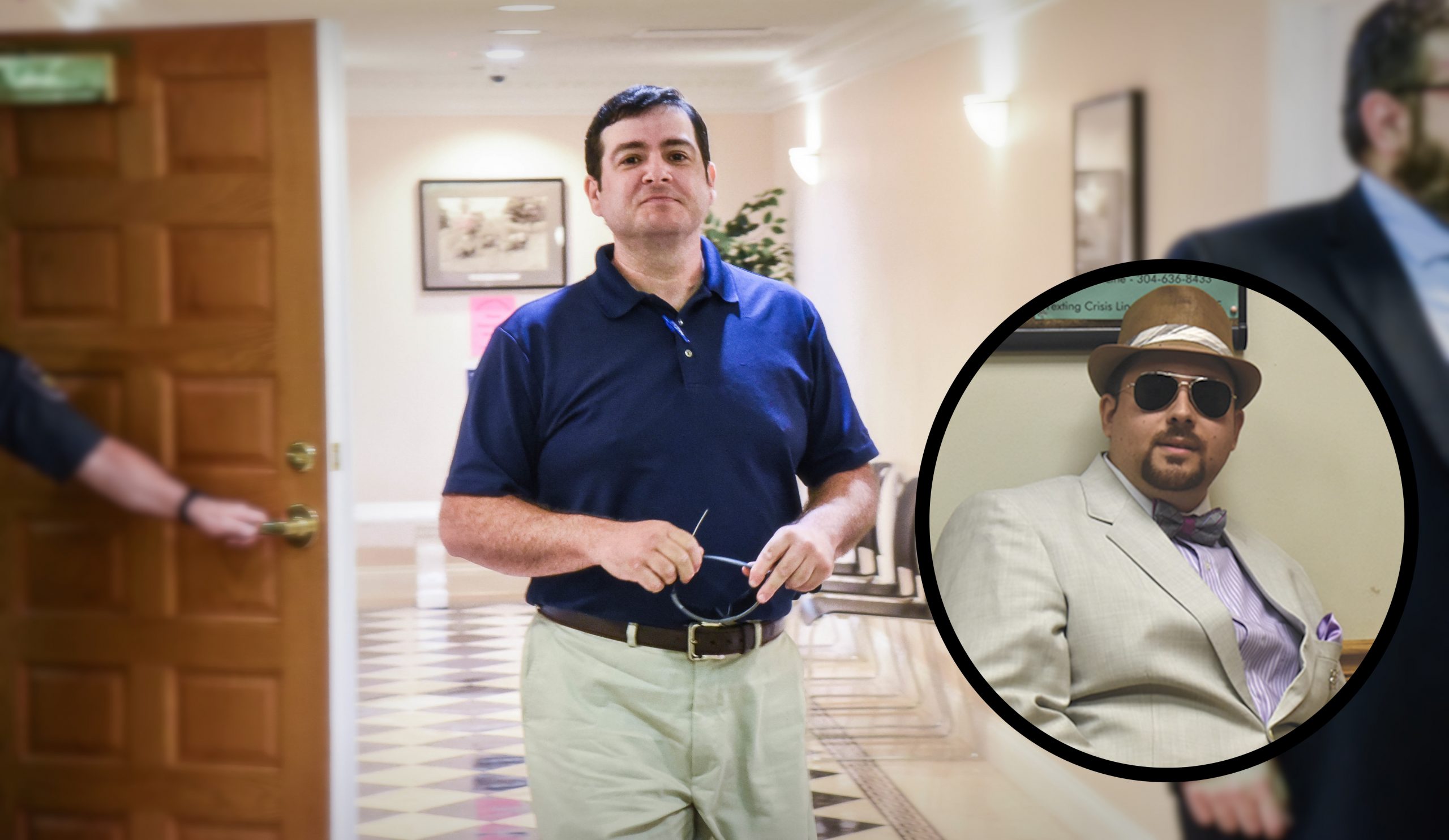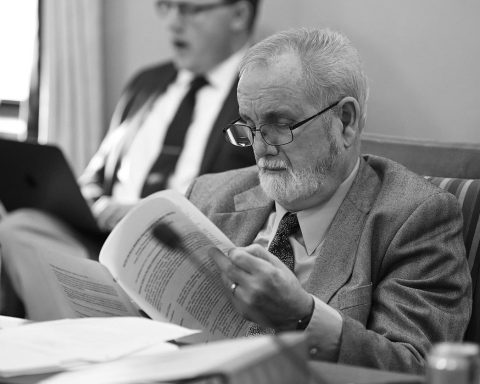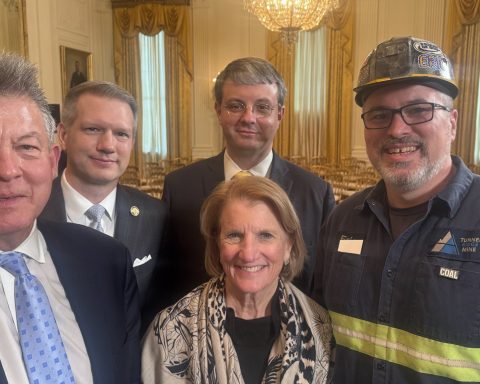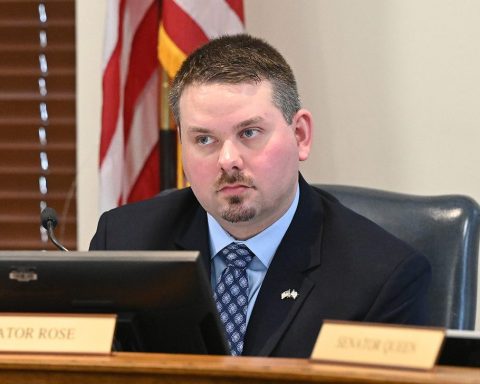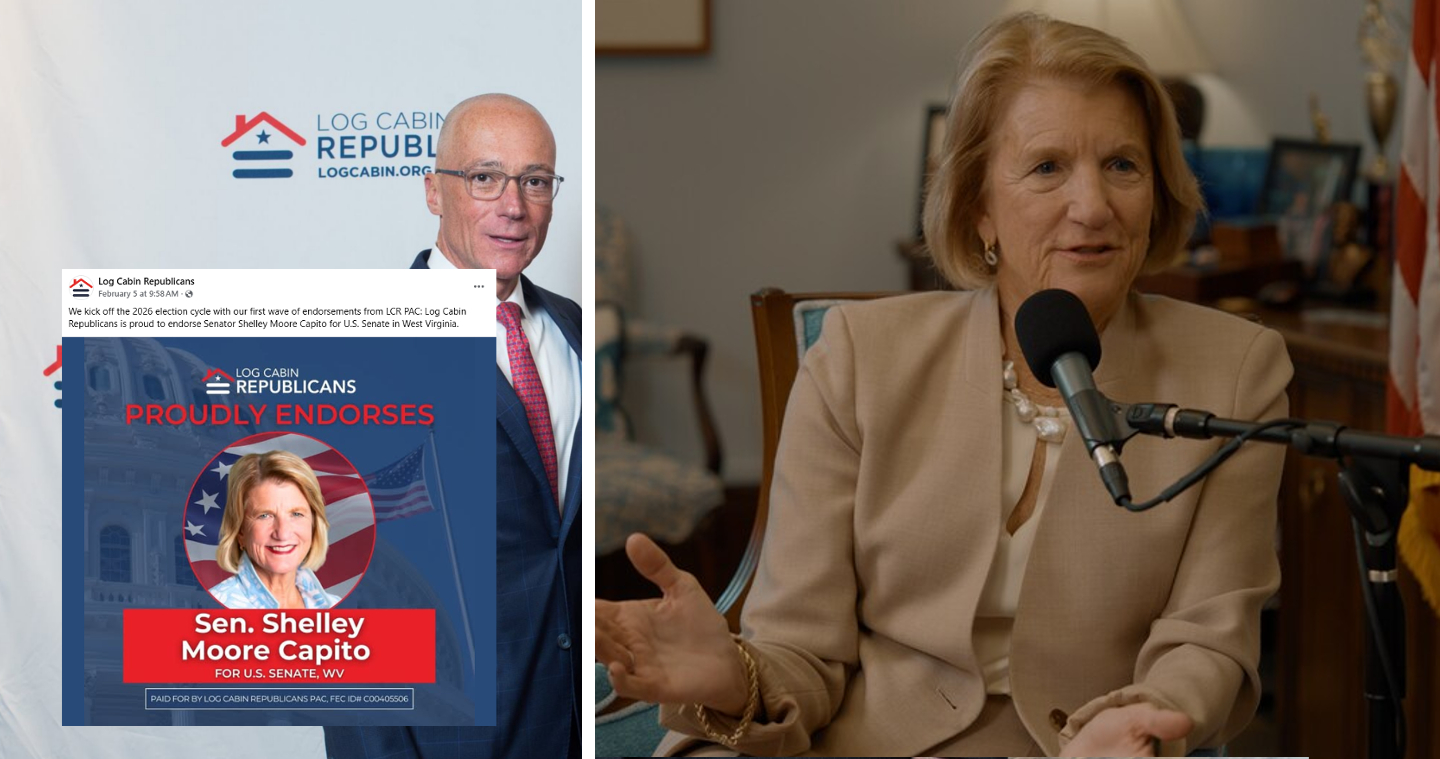BUCKHANNON — On May 27th, the Upshur County Prosecuting Attorney unexpectedly dropped the charges against Asad Derya Khan and Michael Lee Morehead after violating laws pertaining to election interference in the 2020 Buckhannon Municipal Election. Khan and Morehead were charged for anonymously circulating material to aid the defeat of Shelia Sines, a former candidate for Buckhannon City Council. Morehead was also charged for violating WV Code §3-8-11(c), which prohibits defamation from being used to aid the defeat of a political candidate.
West Virginia Code §3-8-12 reads, “A person may not publish, issue, or circulate, or cause to be published, issued, or circulated, any anonymous letter, circular, placard, radio or television advertisement, or other publication supporting or aiding the election or defeat of a clearly identified candidate.”
West Virginia State Code §3-8-11 states, “Any person who shall, knowingly, make or publish, or cause to be made or published, any false statement in regard to any candidate, which statement is intended or tends to affect any voting at any election whatever; Is guilty of a misdemeanor, and, on conviction thereof, shall be fined not more than $10,000, or confined in jail for not more than one year, or, in the discretion of the court, shall be subject to both such fine and imprisonment.”
Recently appointed Magistrate L.J. McCue presided over both cases, after former Upshur County Magistrates recused themselves due to conflicts of interest.
Assistant Prosecuting Attorney Kelly Cunningham conveyed to the court that the Upshur County Prosecutor’s Office was dropping the charges against both Asad Derya Khan and Michael Lee Morehead as the charges allegedly “cannot withstand a First Amendment Constitutional challenge; therefore, the State moves to dismiss.”
The victim, Shelia Sines, asked to address the court and stated, “These people tried to destroy my wellbeing and they came close to it. And again, Mr. Khan, you allowed him off and he makes a hand gesture going out the door to us. This is what you’re allowing to happen when you just dismiss these types of things.” Sines also pleaded for an explanation.
Before dismissing the charges in the State of West Virginia v. Michael Lee Morehead, Magistrate McCue responded, “The State—they’re the ones that do the research as to whether the evidence is there or not. We can only have a hearing and judgement on what is presented to us.”
This means that the Upshur County Prosecutor’s Office alone determined that both provisions in the West Virginia State Code are unconstitutional and unenforceable. The Upshur County Prosecutor’s Office would not provide an explanation to the press for legal precedents cited to explain their conclusions.
However, Attorney General Patrick Morrisey provided an opinion explaining WV Code §3-8-12 is in violation of McIntyre v. Ohio Elections Commission, in which the U.S. Supreme Court ruled a state law prohibiting the anonymous distribution of leaflets in the context of a political campaign is unconstitutional.
“The Ohio statute at issue mandated the inclusion of identifying information (e.g., the name and address of the person responsible for
the material being distributed) on any ‘notice, placard, dodger . . . or any other form of general publication’ that was designed to ‘promote the nomination or defeat of a candidate or promote the adoption or defeat of any issue, or to influence the voters in any election,'” Morrisey expressed in 2017.
“Relying on the principles first established in Talley, the Supreme Court held that ‘an author’s decision to remain anonymous, like other decisions concerning omissions or additions to the content of a publication, is an aspect of the freedom of speech protected by the First Amendment.'”
In the McIntyre decision, the Supreme Court essentially created the legal precedent that there is a “right to remain anonymous” in terms of lawful speech, but not defamatory speech. The manner in which WV Code 3-8-12(a) is worded, it broadly bans all anonymous speech. Therefore, it could be reasonably argued that the entire code is perhaps invalidated by this decision.
In the State of West Virginia v. Asad Derya Khan and in the State of West Virginia v. Michael Lee Morehead they arguably did not desire to remain anonymous primarily out of the fear of “threats, harassment, or reprisals from either Government officials or private parties.” Their desire to remain anonymous was presumably because they wanted to conceal their identities for the purpose of disseminating defamatory statements and preventing personal repercussions. Anonymity was not used to prevent negative repercussions from making factual statements. It was used to anonymously violate state law and commit defamation against a political candidate. This is why they even went to the extent of using the alias ‘Ray Sines,’ the name of the victim’s husband, to commit these unlawful acts.
The name Ray Sines, was not viewable publicly. Rather a search warrant was required to find the payment information and operator of the site. Therefore, it could be argued that they used the name Ray Sines as a deterrent to investigators, so that the blame for the illegal activity would be placed upon him, rather than themselves. This also made Ray Sines a victim in their endeavors.
Most prosecutors and attorneys will follow established legal precedents. The decision that the Upshur County Prosecutor’s Office made to dismiss §3-8-12(a) was not unpredictable.
While there may be an explanation for Upshur County Prosecutors to drop §3-8-12(a), there was no provided explanation whatsoever for dropping §3-8-11(c), which prohibits defamation from being used to aid the defeat of a political candidate.
In a discussion with Mountaineer Journal, legal counsel for the West Virginia Secretary of State expressed that §3-8-11(c) is constitutional, enforceable, and still on the books in West Virginia.
The Opinion of the Court briefing in McIntrye stated, “The state interest in preventing fraud and libel stands on a different footing. We agree with Ohio’s submission that this interest carries special weight during election campaigns when false statements, if credited, may have serious adverse consequences for the public at large.”
Therefore, in this decision, the United States Supreme Court ruled that state laws prohibiting anonymous defamatory speech in elections are permitted constitutionally, let alone state laws that prohibit defamatory speech in elections regardless of if the author chooses to remain anonymous.
Attorney General Patrick Morrisey also concurred, expressing, “On the question of state interest, the Court accepted that States have a legitimate interest in ‘preventing fraud and libel’ in the election context.”
Additionally, another important question is why the Upshur County Sheriff’s Office charged Morehead alone for violating §3-8-11(c), when Khan also admittedly published posts distributing the defamatory website. Khan was only charged with the statute that was under question constitutionally.
Furthermore, both of these violations were provided to the Upshur County Sheriff’s Department by the office of the Secretary of State, who assisted with the investigation along with their legal counsel. If neither of these state code violations were enforceable under the defamatory circumstances, why would the legal counsel for the West Virginia Secretary of State’s office provide these violations to the investigating officer as a criminal referral?
At the conclusion of the hearing of the State of West Virginia v. Michael Lee Morehead, Sheila’s husband, Ray Sines asked to address the Court prior to the adjournment.
“To me, if somebody broke the law, they were arrested for it, they confessed to it, and she [Cunningham] turns around and tries to use a technicality to get them out… She is supposed to be fighting for my wife, she’s not supposed to be fighting for them,” he expressed. “This is not justice at all.”
The defamation campaign leveled against Shelia Sines was very public in her campaign for a municipal council seat, and likely influenced the results of the election.

